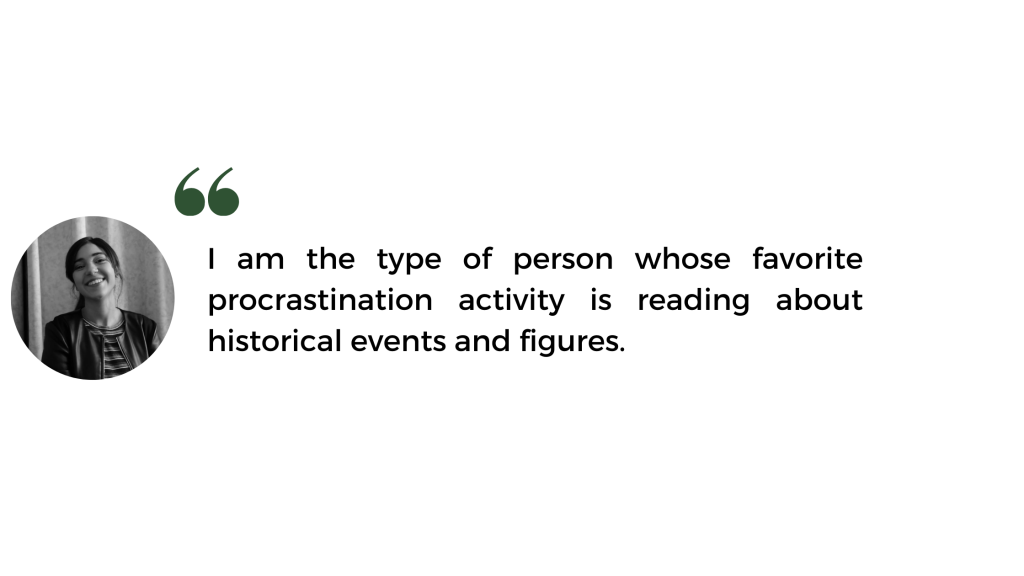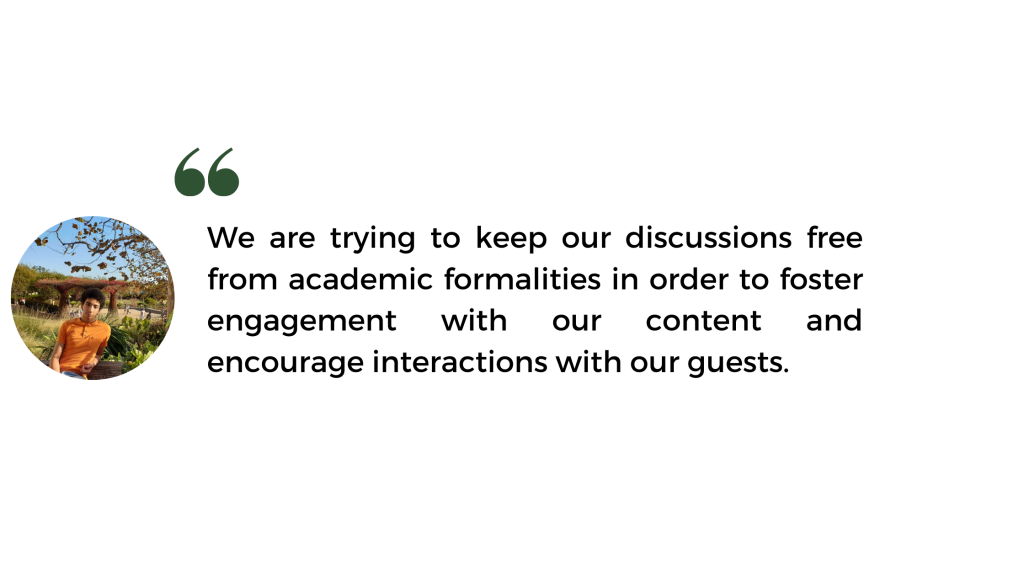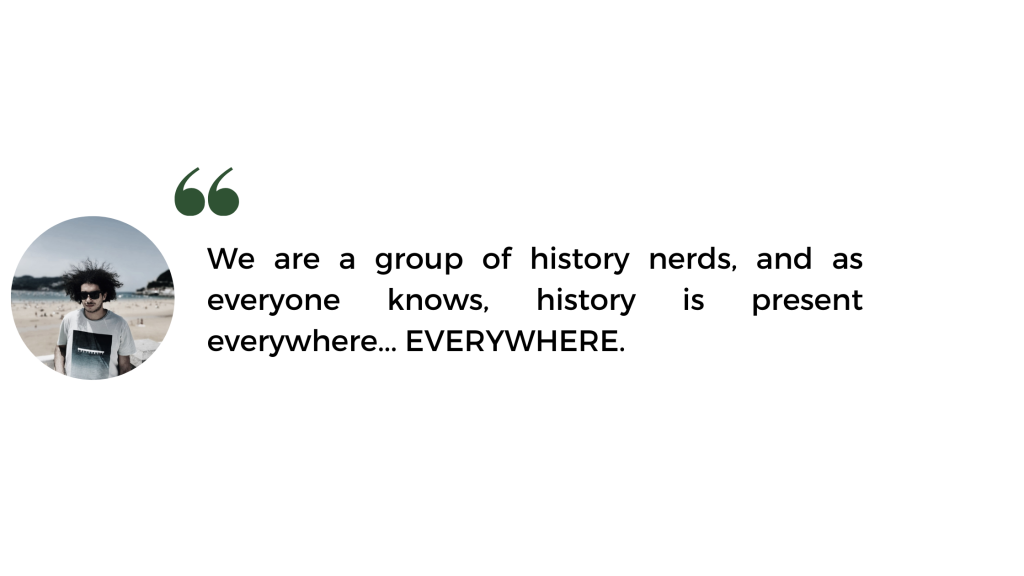It’s sad to admit that most young adults are not huge History fans. Most of them can’t quite grasp why they need to retain information that will not serve them any good. It seems like the younger generation hates history because they find it “boring” and “not appealing”. Let’s face it, most history classes, especially in the Moroccan/French system, are not conducted in the most interesting way. Learning history either involves lectures which consist of the teacher rambling on about the events that took place or students reading many chapters of a thick book. Despite the fact that our era is evolving at the speed of light, history is still taught with the same archaic, “has-been” methodology. Therefore, is talking about History still relevant and interesting in 2020?
Well, AUIers decided to rise to the challenge with an iron fist. In July 2020, The co-founders Hiba Mezyane and Ghita Rochdi launched the “Café-History” project. A unique, one of a kind initiative aiming to make history engaging and delightful again. As an aside, this interactive project combines both AUIers and non-AUIers. Through a series of interactive Facebook lives and Spotify podcasts with a variety of impressive guests such as Dr. Stephan Trevathan, a part-time Faculty of Comparative religion at Al Akhawayn University, and Mustapha Kadiri, a Historian and Professor at Mohamed V University, the founders seek to shed the light upon intriguing subjects such as Nationalism and Resistance, Intellectual Production in Cinema, and many more. However, the purpose of those lives is not to only share facts and knowledge but it is targeting the critical thinking aspect of historical narratives.
In an attempt to understand the project in-depth, I decided to interview three members of the Café History team:
- Ghita Rochdi, the co-founder of the project and a passionate senior AUI engineering student.
- Youssef Mokssit, the creative manager and an enthusiastic senior AUI computer science student.
- Ayman Hjirt, the content manager and an eager computer science student in France.
Chaimae: What was the motivation behind the creation of “Café History”?
Ghita: The stories hidden inside old and new sources are so surprising and interesting. When we were in lockdown, people relied on the Internet a lot to pass time. As a result, many groups were created, notably where people pretended they lived in different time periods. I have learned about many historical events thanks to memes and jokes shared inside those groups. I remember that I was watching a history video with other members when Hiba and I talked casually about how great it would be if we could organize a casual discussion about history that would allow everyone to share their inputs, sources, and ideas. A few days later, we created our logo and started contacting experts for our first episode.

C: Was it easy to find contributors/Speakers? What were your apprehensions while launching the project?
G: Being part of online communities that fancied history made it really easy to connect with people interested in contributing. I have always wanted to do videos about history and the idea was there for quite a long time, but I would say that finding people passionate about the concept and ready to work and make the change happen is what brought Café History from an idea to an independent project. At first, we were anxious about receiving negative responses, but the fact that we have a supportive team made the experience a fantastic one. After each episode, we get to chat with the viewers and understand their opinions too. Even the few negative comments were just a reason for us to have a few laughs. All in all, we are so happy that we are working in making Café History a safe environment for opinions to be discussed respectfully and in a manner that will make all of us learn about the history and use it to make our present and future better.
C: What audience are you guys targeting?
Youssef: Since one of our main goals is to make history more approachable and less intimidating for the general public, we are targeting whoever is interested in history as a discipline with a special emphasis on the youth.
C: How are the lives being promoted?
Y: So far, our promotion process was based solely on word of mouth and people’s recommendations. Through our personal networks, we were able to gather more than 1000 likes on our Facebook page and thousands of views in our lives. We are currently working on implementing a promotional strategy with paid ads on different platforms such as Instagram and Facebook in order to increase our lives’ exposure and attract new audiences.

C: How do you guys choose the content that you are going to discuss with guests ?
Ayman: We contact experts who would provide us with interesting information in various fields. Experts are not necessarily historians but they have deep knowledge in their field. We coordinate with them, then prepare a technical sheet that presents the subject of the discussion, the team, and most importantly, the crucial questions we’re going to ask speakers, and that will play a big role in making the discussion interesting.
C: Why is it important for you guys to choose critical subjects?
A: We believe that History is relative. Its narrative differs depending on the parties involved, is it the winning side? Or the losing one? Hence, our aim is to analyze the different narratives, to deconstruct them, and to discuss them from different perspectives. However, this analysis would not be complete without having the audience’s contribution, otherwise, lives will be too technical only people familiar with the field would understand. Therefore, we try to choose subjects that we can all discuss while grabbing our audience’s attention.

Once again, the AUI community has proven that with creative ideas, and little will to change things for the better, any student-led initiative can do wonders and make an impact in the Moroccan society. Stay tuned for the second season of Café History that is starting this Sunday 4th!


